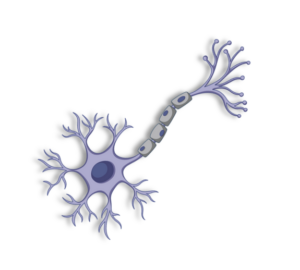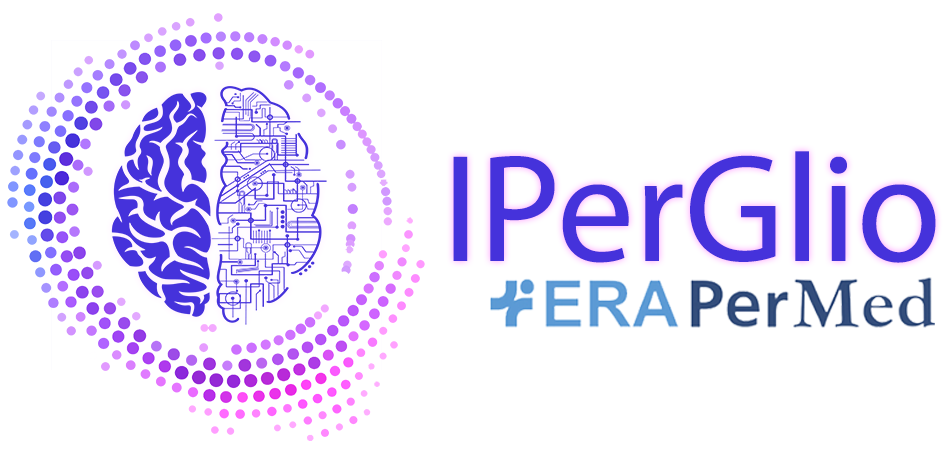GBM & AI
Glioblastoma (GBM)
Glioblastoma (GBM) is a fast-growing and aggressive brain tumour. It invades nearby brain tissue but generally does not spread to distant organs. GBM is one of the most malignant cancers in adults, has a poor prognosis and is very resistant to treatment. Given the poor prognosis of many GBM patients, there is growing interest in the use of new treatments, including immunotherapy. These new therapies utilise the body’s own immune system to fight the cancer and some of them have shown a long-term survival benefit in 10-20% of patients. It is currently unclear which types of patients respond well to immunotherapies. One of the main goals of IPerGlio is to learn more about why immunotherapies work well in some GBM patients but not in others.


Artificial intelligence (AI) in IPerGlio
Artificial intelligence solutions, as they are currently used, serve to make sense of large amounts of data. AI encompasses a variety of techniques and approaches, including machine learning, in which algorithms learn from data and make predictions, and deep learning, a subset of machine learning in which neural networks are used to model complex patterns. In medicine, AI can recognise patterns in large databases of patient data and predict which treatments will be most effective for individual patients, leading to personalised treatment plans. The information can be used to predict cancer progression and patient outcomes, providing doctors with insights to proactively adjust treatment plans.
AI requires large amounts of data to recognise patterns. For this reason, researchers often use public databases in which anonymised patient data is made available. This allows researchers to train AI with more data than they could collect in one institution or project alone.





